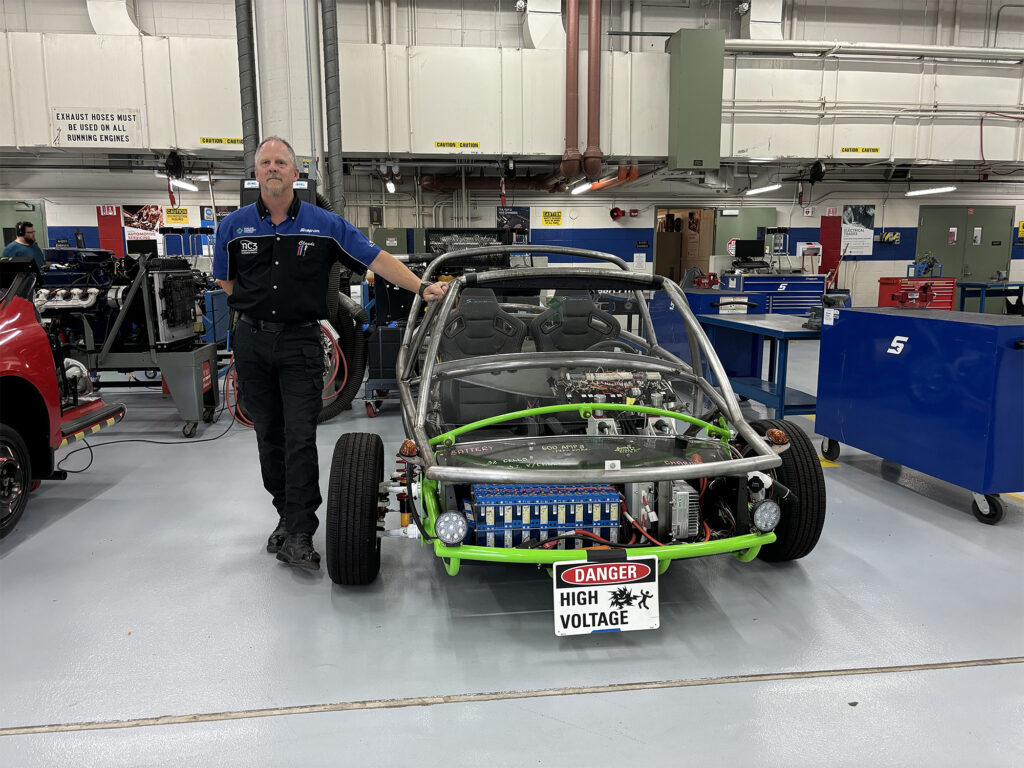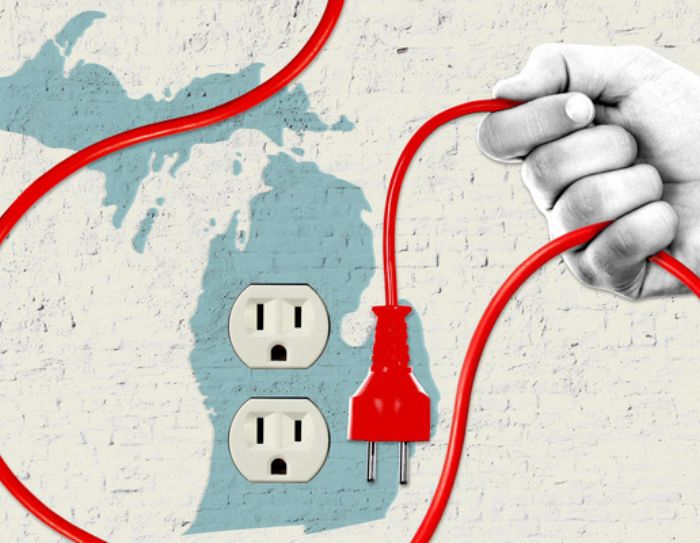The Electric Vehicle Debate in Michigan: Accelerate or Hesitate?
E&E News By Politico
Dec. 23, 2024
David Ferris
Michigan, home to the heart of America’s automotive industry, stands at a crossroads in the shift towards electric vehicles (EVs). While some residents are eager to embrace the change, others remain cautious, fearing economic disruptions. This debate could have profound consequences on both the state and national economies.
Claude Townsend, an auto-repair instructor at Oakland Community College, embodies this ambivalence. Although he has introduced a course on hybrids and EVs, his enthusiasm for a full transition is tempered by concerns about timing. “I’m not, like, full-on gaga over it,” Townsend remarked, emphasizing the need for a balanced approach.
Many in Michigan share Townsend’s cautious perspective, worried that the federal push for EV production might threaten traditional auto jobs. This sentiment is echoed in other red and swing states but carries particular weight in Michigan, a key player in the national automotive landscape.
On the other hand, the potential for economic rejuvenation through EVs is enticing. The Inflation Reduction Act and other federal initiatives have spurred new economic activities in Michigan, especially in Detroit, a city long synonymous with the auto industry. These initiatives promise not only to modernize factories but also to position the state as a leader in climate change efforts.

Photo credit: David Ferris/POLITICO’s E&E News
Sandy K. Baruah, CEO of the Detroit Regional Chamber, expressed the sentiment of many corporate leaders: “Most of the corporate leaders I talk to believe that EVs are going to be the future. The question is: Is it 15 years out or 30 years out?” However, with political shifts potentially on the horizon, such as President-elect Donald Trump’s promise to reverse current EV policies, the trajectory of this transition remains uncertain.
Despite these challenges, federal investments are already reshaping Michigan. Key projects include a $544 million expansion loan for SKK Siltron CSS in Bay City and a $500 million grant for General Motors near Lansing. Additionally, Detroit received $23.4 million for EV charging infrastructure, highlighting the significant federal support for the state’s EV transformation.
Two Worlds in Michigan
Yet, on Michigan’s roads, the presence of EVs remains minimal. Traditional gasoline vehicles still dominate, with less than 1 percent of registered cars in the state being electric. Glenn Stevens Jr., of MichAuto, noted, “If you landed in Detroit and drove downtown, you would not see it. The casual observer, citizens, might not see it. But if you’re in the industry, you can’t miss it.”
In the auto industry’s inner circles, EVs are a constant topic, with companies like General Motors pushing forward ambitious EV plans. GM has slowed some EV rollouts but continues to invest heavily in battery factories and new EV models. The federal government’s regulations and incentives have played a significant role in this shift, drawing comparisons to China’s successful EV strategy.
However, Townsend and other skeptics remain wary of a rapid transition, citing infrastructure concerns and the need for more charging stations. “When things are forced, you tend to draw back and put your guard up,” Townsend commented, reflecting the tension between government mandates and industry readiness.
Revitalization in Detroit
Meanwhile, Detroit is experiencing a resurgence, in part due to EV investments. Entrepreneurs like Sam Shapiro, who relocated his startup to Detroit’s Michigan Central, are drawn by opportunities in the EV sector. The area has transformed from its desolate past into a hub of innovation, with Newlab hosting numerous startups focused on battery-powered technologies.
Shapiro’s company, Grounded RVs, is thriving in this new environment, contributing to Detroit’s revitalization. “I have totally fallen in love with Detroit,” Shapiro stated, capturing the optimism of those betting on the city’s electric future.
The Economic Impact
Amidst the promise of innovation, there are concerns about job losses in traditional manufacturing sectors. Adam Martin, an auto worker, voiced worries about automation reducing the need for human labor. The broader impact of EVs on employment remains a topic of debate, with studies offering varied projections.
Political dynamics further complicate the EV transition. In recent elections, Republican campaigns in Michigan capitalized on concerns about EVs, portraying them as a threat to traditional auto jobs. This strategy resonated with many voters, highlighting the challenges Democrats face in promoting EV policies.
As Michigan navigates this pivotal moment, the outcome of the EV debate will shape not only the state’s future but also its role in the global automotive industry. The path forward remains uncertain, with both economic opportunities and challenges on the horizon.
Original Story at michauto.org
